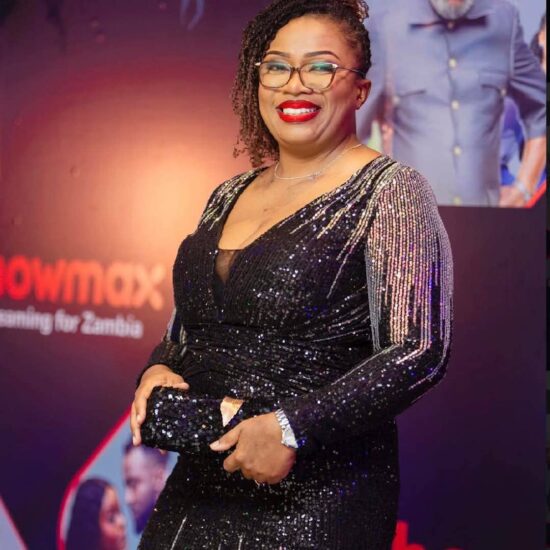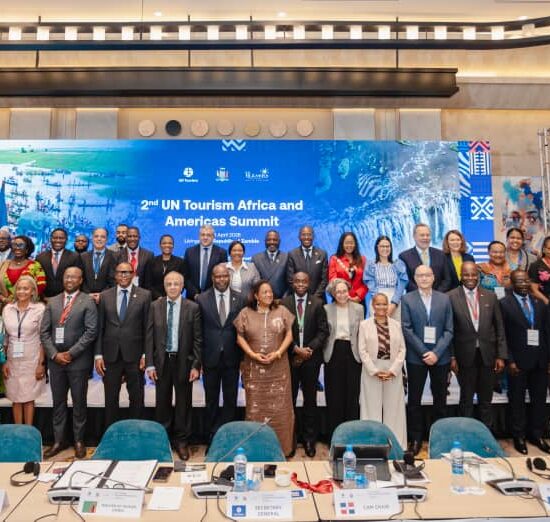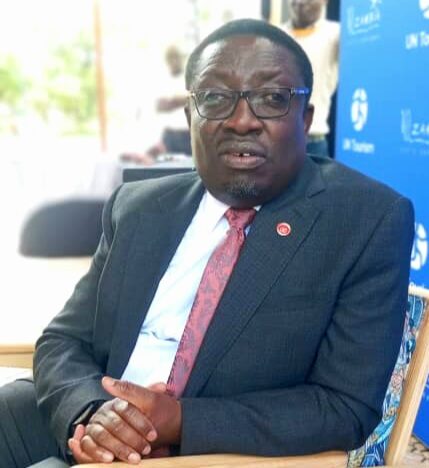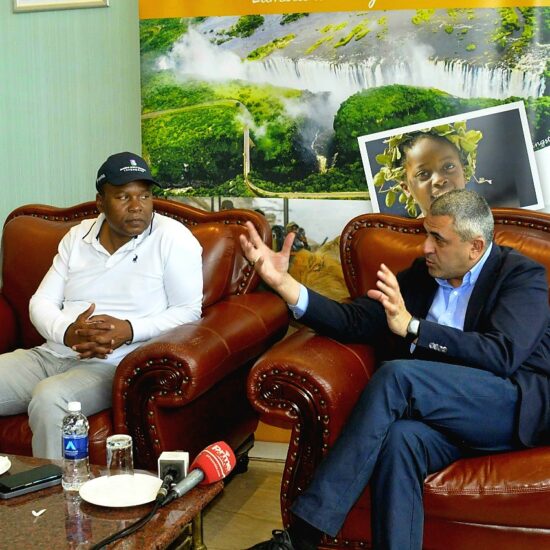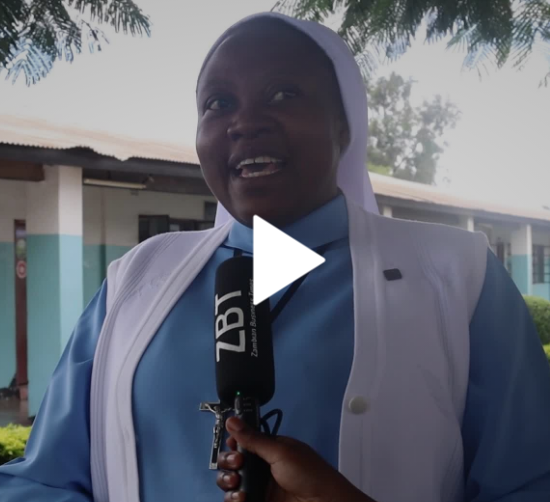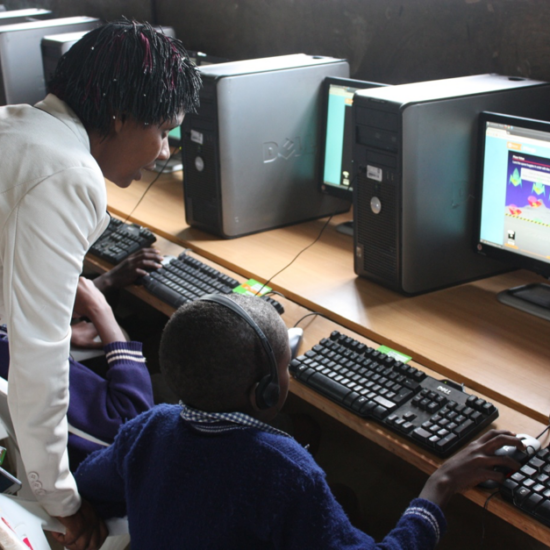
A former Copperbelt University – CBU engineering Student, Abel Kayange has scooped the 2020 ZICTA ICT innovation program prize of K50,000.
Abel Kayange completed his degree programme in telecommunications engineering at the Copperbelt University last year 2020 and he spends most of his time watching documentaries of engineering innovations and ways of making a living through these innovations.
Abel was born on 8 April 1994 and is the fifth born in a family of six. He attended primary education at Chibolya Primary School, junior secondary at Kamwala Primary School and senior secondary at Libala Secondary School after which he went to CBU in 2015 and completed his programme in 2020.
While at CBU, Abel and his friends were told to design an automated way of how one can detect alcohol in a motor vehicle in order to reduce accidents, which they did.
The team then thought of doing something for themselves and decided to find ways of helping people in supermarkets spend less time on the till by coming up with a Smart Shopping Trolley. This idea was born in 2019 and in 2020, Abel and his two classmates from CBU implemented it.
Abel watched a documentary where a man suggested making shopping easy by designing a smart trolley and that is where the idea came from, the man called it a smart trolley but did not explain how it was going to be done to make it smart.
Abel came together with two friends who worked on the programming while he worked on the electrical aspect and looked at what may be required such as an LCD, RFID reader and brought in motors because they wanted it to be able to move on its own just by pressing a button.
A ZigBee technology-electronic device used in communication from one circuit to the other was employed which is used to transfer information from the trolley to the counter section or till of a supermarket.
The smart shopping trolley operates in a way that once one puts goods in it, the total cost of the goods will be calculated and this information will reflect on the cashier’s till. Each trolley will have a trolley number so that when one goes to the till the cashier will simply look for the trolley number on their system and be able to see the total cost of the goods one has bought which means there is no need to go to a specific till.
The trolley has a screen, which calculates how much the goods you have gotten cost, has a button, which you press for it to move on its own, and has a constant speed so that those that may not manage to push it especially physically challenged and pregnant women can be assisted.
The sensor, which is the barcode has a certain radius which can be limited to the size of a trolley so that all the goods put in the trolley can be detected.
In their prototype, only one trolley was designed but they realised that looking at the ordinary trolleys available it may be difficult to have a fixed radius, which they had planned for in their design.
Abel is looking forward to making shopping enjoyable for people and secure for supermarkets so they can reduce on the losses that they incur due to theft. A system will be put at the exit and entrance of supermarkets to detect goods that have not been scanned and another in the trolley to detect all the goods being put in the trolley and making sure, they are scanned.
It took the three friends eight months to develop the trolley due to Covid-19 because some borders were closed and all the components were found in the United Kingdom, which they bought via Amazon so they waited for 5 to 6 months to buy the components, which costed about K3,000.
They would have taken less than two months if not for the pandemic because everything was already on paper and all that was left was buying the components.
Zambia not having an industry that produces the components that they needed was the biggest challenge, the other was finances, after the research was done, the team realised they had to buy all the components outside Zambia and had no money at the time.
An engineering lecturer, Mr. Mugala who used to take Abel and his friends in programming and project designing provided help knowledge wise and encouraged them to say it was possible until it became a reality.
Abel and his friends are focusing on marketing the trolley and have targeted supermarkets such as Shoprite who have responded positively, Pick N Pay and Game stores, as it is easier to bring other supermarkets on board once the big ones agree.
They are also looking for investors willing to collaborate with them, as they would need more funds to be able to supply a big number of trolleys to supermarkets.
People questioned whether it was a practical innovation and whether it would work in Zambia, which helped them think more because they thought of ways of improving the trolley due to criticism.
They also got comments about how innovation may not go anywhere in Zambia because people and companies do not take interest to help implement innovations further, you are given something to show appreciation for coming up with an innovation and it ends there.
ZICTA and other companies that the authority was working with taught them about business, marketing and pitching proposals among other things.
The K50, 000 cash prize won from the ZICTA ICT innovation programme will go towards registration of the company, patents and buying of some components needed to design a big trolley because a small prototype was designed for the ICT innovation programme.
Due to not meeting physically with ZICTA because of the Covid-19, he almost gave up on the way because he thought he was spending a lot of money on bundles as Zoom and WhatsApp were the only mode of communication but his friends encouraged him to continue.
Abel felt intimidated when he heard the ideas of other contestants in the programme and what they had done, he did not think he would win but with time he realised that it also depended on how people look at your presentation, how they think it will help and how much they believe in you.
He has advised young people with innovative ideas to listen to the views of the people around because sometimes what may seem like criticism maybe ideas that people are bringing on board to help one’s idea be more practical adding that innovators should not give up but push their innovations and make them as practical as possible.
Abel says the journey of an engineer who is also an entrepreneur and is going to change the face of innovation not only in Zambia but in the world too has begun for him.


